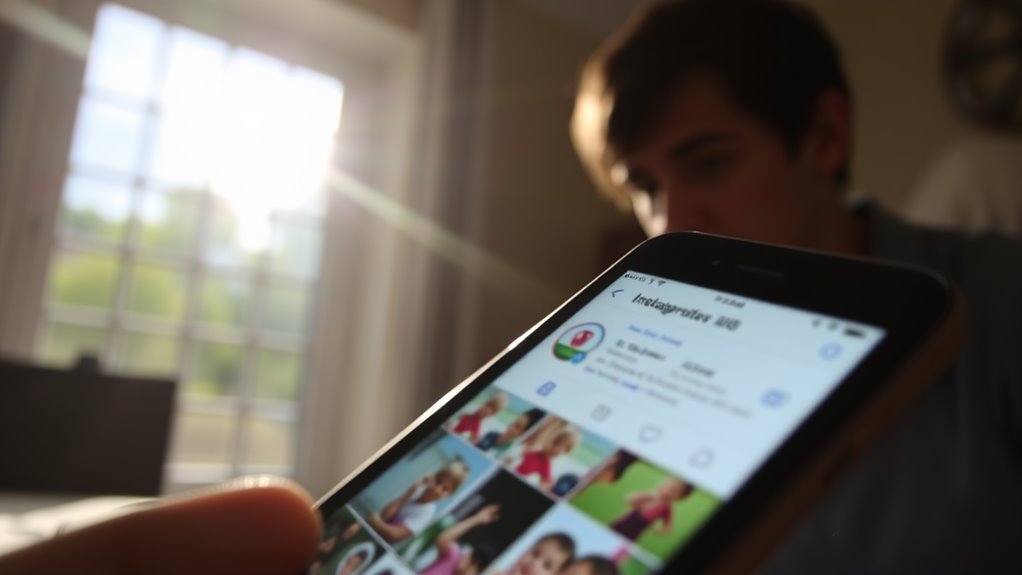The Risks of Oversharing- Privacy Concerns for Parents
You might think sharing your child’s milestones on social media is harmless, but have you considered the potential privacy risks? When you post personal information, like their school or friends, you could unknowingly expose them to threats. The digital footprint you create can follow them into adulthood, impacting their future. It’s crucial to think critically about what you share and how it might affect your child’s safety and reputation. What boundaries should you set to protect their privacy? Exploring this question reveals deeper implications that every parent should understand.
Understanding Oversharing
In today’s digital world, oversharing has become a common pitfall for many parents. You might think sharing your child’s cute moments is harmless, but it can lead to some unexpected issues. When you post photos or stories online, you’re inviting a wide audience, and not everyone has good intentions.
Imagine posting a sweet picture of your kid’s birthday party. It might seem innocent, but you don’t know who’s really seeing it. Strangers, friends of friends, or even people you don’t remember can access it. That’s where the trouble begins! Your child’s safety should always come first.
Plus, there’s the chance of putting pressure on yourself to keep sharing. You might feel you need to show the world how perfect your life is, but remember: everyone’s life has its ups and downs.
Instead of sharing every little thing, consider keeping some moments private. Talk about your child’s achievements with friends in person or share a funny story in a text. Keeping some things just for you can make those moments even more special.
Privacy Risks for Children
Sharing personal moments online can expose children to various privacy risks. You might think that posting cute pictures or funny stories about your kids is all in good fun, but it can open doors to unexpected dangers.
When you share too much, like your child’s full name, school, or even their routines, you invite unwanted attention.
Imagine someone sees a photo of your child at the park, and they know exactly where that park is. Yikes! It’s like giving them a map to your child’s favorite hangout spot. You wouldn’t want to do that, right?
Also, kids don’t always understand the long-term effects of what’s shared online. A silly photo today could come back to haunt them years later. Friends might tease them, or future employers might see it.
Long-term Digital Footprint
Building a long-term digital footprint starts the moment you post anything online about your child. Every cute baby picture or funny story you share can stick around for a long time, maybe even forever!
You might think, “It’s just a post,” but that little post can create a digital trail that follows your child into adulthood. Imagine them searching for jobs one day, only to find those old, silly photos you thought were harmless. Yikes!
As parents, it’s super important to think about what you’re sharing. Privacy settings can help, but they’re not foolproof.
Even with the best intentions, you mightn’t know who’s seeing that adorable photo or heartfelt moment. Plus, once it’s out there, you lose control over it.
Social Media and Boundaries
Maneuvering social media can feel like walking a tightrope for parents. On one side, you want to share those adorable moments—like your toddler’s first steps or a funny face they made during dinner.
On the other hand, you need to think about boundaries. It’s easy to forget that once you post something online, it’s out there for the world to see, forever.
Setting boundaries is essential. Ask yourself: who’s seeing these posts? Is it just friends and family, or are you opening the door for strangers?
Consider creating private groups for sharing those precious moments, so only trusted people can see them.
Also, think about what you’re sharing. Do you really want everyone to know your child just had a meltdown at the grocery store?
While it might feel relatable, it can also lead to unwanted attention.
Consent and Children’s Privacy
Consent is a crucial aspect of protecting children’s privacy in today’s digital world. When you share pictures or details about your kids online, it’s super important to think about whether they’d be okay with it.
Kids mightn’t fully understand the long-term effects of oversharing, so it’s up to you to make those choices wisely.
Before posting, ask yourself: Would your child like this? Are they old enough to have a say?
Sometimes, it’s easy to forget that kids also have feelings and rights. They deserve to have control over their own stories, just like you do.
Think of it this way: posting a silly photo of them in their pajamas might seem harmless, but they mightn’t appreciate it when they’re older.
Plus, the internet never forgets!
Cyberbullying and Online Safety
As you navigate the complexities of sharing your child’s life online, it’s equally important to contemplate the darker side of digital interactions, such as cyberbullying.
It’s a serious issue that can leave lasting scars. When you post pictures or stories, you mightn’t realize the potential for someone to twist them into something hurtful. Kids can be mean online, sometimes hiding behind their screens, and that makes it easier for them to say things they’d never say face-to-face.
Imagine your child excitedly sharing a fun moment, only to have a peer make a nasty comment. That can really sting!
And while you can’t control what others say, you can set the stage for a safer online experience. Talk to your child about the importance of kindness and encourage them to speak up if they encounter bullying.
It’s crucial to create an environment where they feel comfortable sharing their online experiences with you.
Strategies for Responsible Sharing
Establishing a set of guidelines for responsible sharing can greatly enhance your child’s online safety. First, start by discussing what kinds of photos and information are okay to share. Maybe you can make a family rule that only pictures of fun family moments can go online, like a trip to the zoo, but not embarrassing ones, like that time your child fell into a mud puddle!
Next, remind your child that privacy settings are their best friends. Encourage them to check who can see their posts, and make sure it’s only family and close friends. You can even help them set up their accounts together.
Also, talk about the importance of reflecting before clicking. Ask them to contemplate, “Would I want my classmates to see this?” If the answer’s no, then it’s probably best to keep it private.
Lastly, lead by example! Share photos and stories that reflect your family’s values, and show them how to be responsible online.
With these strategies, you can help your child navigate the digital world with confidence while keeping their privacy intact. After all, a little caution goes a long way!
Legal Implications of Oversharing
Oversharing can have serious legal implications for parents and their children in today’s digital age. When you post pictures or information about your kids online, you mightn’t realize how it could come back to bite you.
For instance, sharing too much personal info can lead to identity theft, which is no fun for anyone. You could also face legal issues if your child’s photos are misused. Imagine someone taking those cute baby pics and using them inappropriately—yikes!
Laws vary by location, but some places have strict privacy laws to protect children. If you’re not careful, you could be breaking those rules without even knowing it.
Plus, if you’re sharing about your child’s school or medical info, you might be violating privacy rights. This can lead to serious trouble, like legal action from schools or healthcare providers.
It’s like opening a can of worms you didn’t even know was there!




